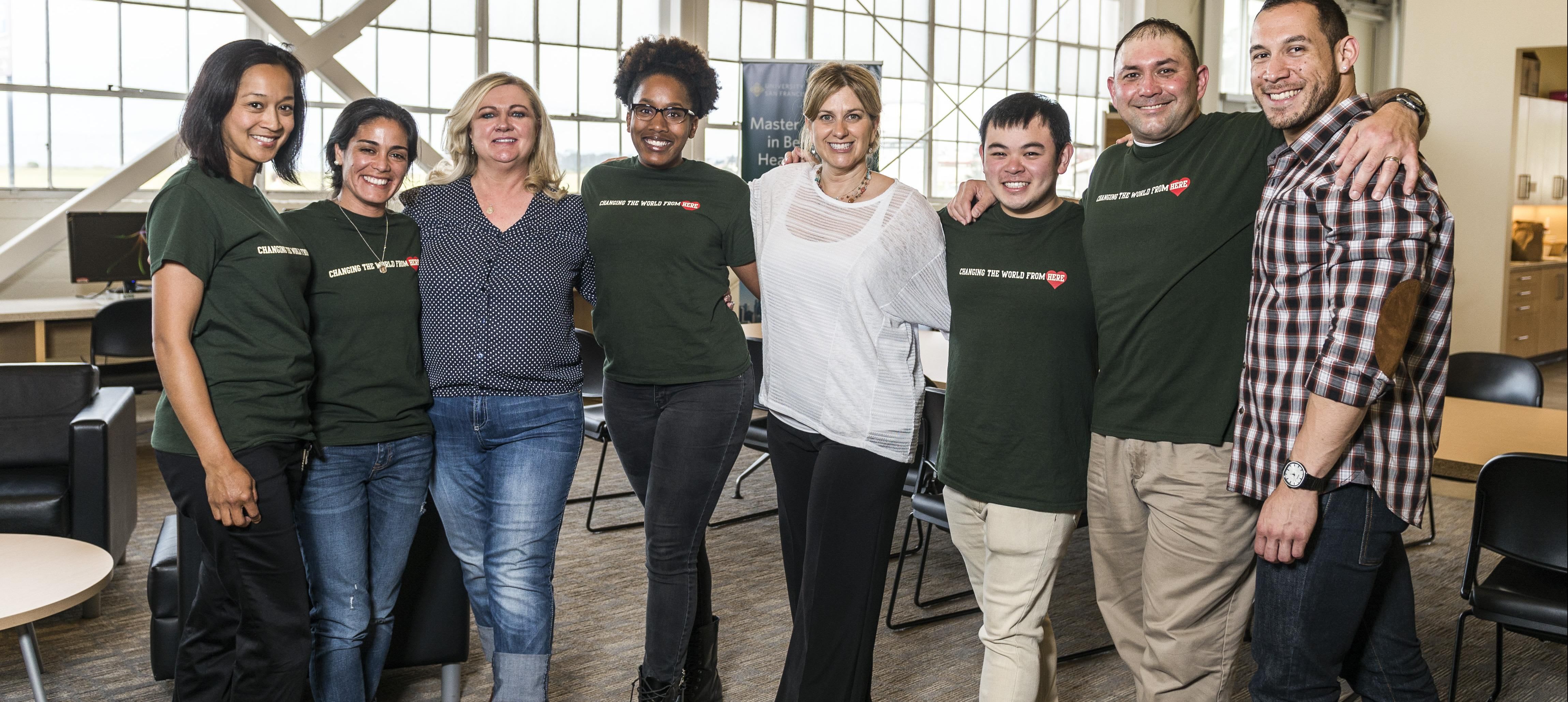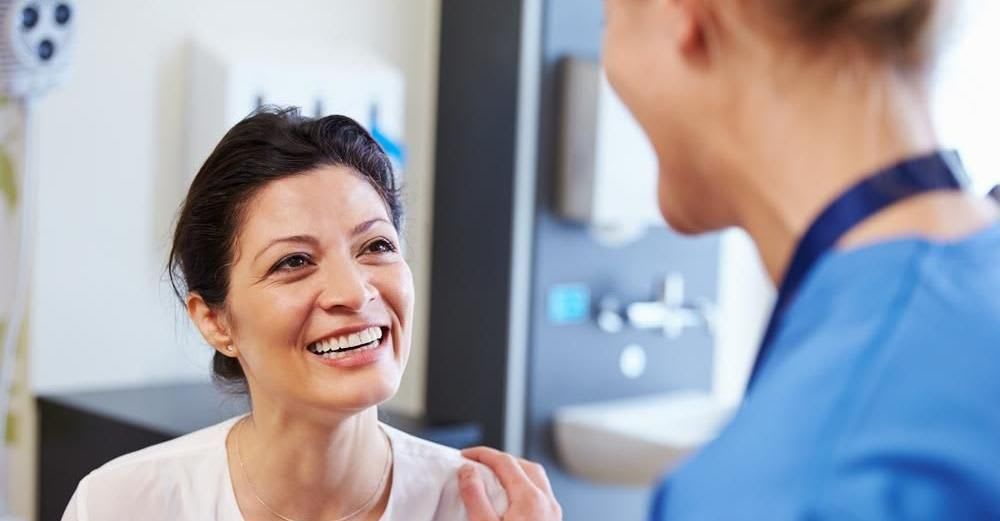Behavioral Health is a Key Element of Good Health Care Policy
There’s an inextricable link between behavioral health and public health. Behavioral health experts can help individuals see how the choices they make can affect their wellbeing—for the good. Read on to find out more about this interdisciplinary field of study and learn more about one program that is making a difference.
- Student Tips

There’s an inextricable link between behavioral health and public health. Many public health concerns like tobacco use, lack of physical activity, poor eating habits, and alcohol consumption are tied to behavior and the social environment. Poor choices can cause diseases like diabetes, cancer, and heart disease that are costly to treat and limit quality of life. Mental health is also closely tied to personal behaviors and attitudes.
People do not always realize that their everyday decisions make an impact on their health. When people understand that the choices they make affect their overall health, they’re more likely to change their decision-making. Behavioral health experts can help individuals see how the choices they make can affect their wellbeing—for the good.
The catch? It’s a simple concept, but difficult to implement. You can’t change the world alone, but you can make choices that can influence the community where you live. With the right set of skills, you can help people choose healthier behaviors and improve the health care and social service system.
How can behavioral health graduates change the world? Pick the right degree.
That’s where theMS in Behavioral Health at the University of San Francisco comes in. Graduates of the MS in Behavioral Health (MSBH) program learn how behavior affects medical conditions such as diabetes and heart disease and mental illness such as depression and substance use disorders.
This unique degree offers a broad vision for behavioral health—it’s not just about mental health care or substance abuse. Unlike traditional degrees that focus on giving clinical certification, this one prepares students to have significant influence on behavioral health choices on a community level. Graduates of this program learn concrete tools to improve social services that support behavioral health management, ensuring they are as efficient and effective as possible.

For Jillian Millares, a current student in the MSBH program, the non-clinical aspect of the MSBH degree was ideal. Millares plans to become a primary care physician. For her, “the MSBH program [offered] great insight into aspects of community-based health care that [she] would likely not find in medical school.” Millares believes that her experiences in the MSBH program will allow her “to build meaningful relationships with community-based organizations and other important stakeholders of health to provide comprehensive primary care to both individuals and communities alike.”
MS in Behavioral Health grads are committed to helping individuals feel empowered and designing and delivering programs that treat individuals holistically. And, as the program stresses the importance of improving health and well-being in underserved communities.
Nicole Bahbout, a 2016 recent graduate of the program, said that she chose the program because she “wanted a program that involved an aspect of community health and advocating for improved well-being, without all the policy talk.”
She added, “After having gotten more interested in the different components of health and eager to bridge the gap between mental and physical health, I decided to further my education and receive my MS in Behavioral Health. I like how this was less focused on policy and more on the community and individual behaviors.”
Bahbout also liked how the MS in Behavioral Health was taught in “cohorts, which work together throughout the twelve-month program, while also allowing students to work with, and learn from, students in other graduate programs such as public health, nursing and psychology.”
Broad Career Opportunities
The MS in Behavioral Health offers students a wide range of career options during and after graduation.
For Ivy Epstein, a researcher with a background in cognitive science, the MSBH degree allowed her to “continue [her] education without having to put a hold on the career [she] loved.” Epstein was also drawn to the MSBH because of its focus on the person as a whole, and because of its rigor in examining why users interact with healthcare providers and information in the way they do. During the program, she was pleased with the “flexibility in coursework topics” which allowed her to “produce a fantastic body of work on an issue of [her] choice.
Allyson Mayo, a 2015 alum of the program described how her coursework led to employment after graduation. “My MSBH fieldwork project, ‘Twenty Something: The New Face of Heroin Addiction,’ focused on sustaining treatment gains for young adults who were suffering from heroin addiction and attending John Muir Hospital’s outpatient treatment program. Today I am employed at John Muir’s Behavioral Health Department as a Mental Health Counselor. In an acute, inpatient setting, I am a member of the interdisciplinary team serving severe and persistently mentally ill patients and in some cases a co-occurring substance abuse disorder. In addition, I am now completing my doctorate in Behavioral Health with a focus on management of integrated behavioral health programs.”
Natalie Macias, another recent graduate of the program, said, “Currently, I work at the University of San Francisco as the Assistant Director for Health Promotion Services. In our department we inform, educate, and support students to adopt healthy lifestyles and make positive behavioral health decisions. I engage with students on a regular basis concerning their health insurance benefits and how to access their healthcare needs from a holistic approach – physically, mentally, and socially.”
Jennifer Massie, worked as a social worker before enrolling in the MS in Behavioral Health. She said, “I came across the USF MSBH program. It fit my desire to gain a broader knowledge of the systems that affect my former clients and also promised to help me learn how to develop programs that can make a community-wide impact. I will always be a social worker—it's in my blood. But through the USF MSBH program, I feel I am becoming a better social worker since I will be able to help a wider variety of people in a more permanent way.”
Cedric Jackson, who works as a manager in one of San Francisco’s public health clinics, agrees. He said, “What I like about the MS in Behavioral Health is that it can be applied on so many levels—individual, organizational, and anywhere in between.”
Want to change the world—or at least the community—with a behavioral health degree? The Masters of Science in Behavioral Health can give you the skills you need. Read more about the MSBH program at the University of San Francisco and apply today!
Images and video provided courtesy of the University of San Francisco - School of Nursing and Health Professions
Find a program in these categories
Read related articles

What You Should Know If You Want To Practice Medicine Abroad

Five Countries to Choose for Nursing Degrees
